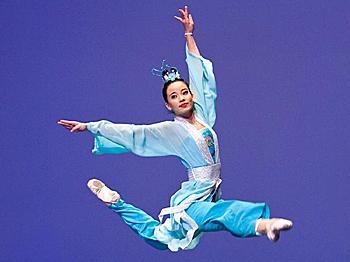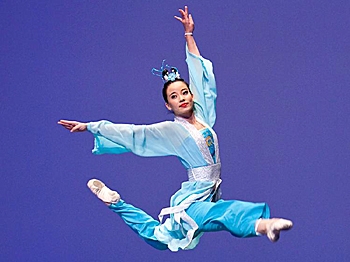Semifinalists of Chinese Dance Competition Wow Audiences
The NTDTV International Classical Chinese Dance Competition semi-finals started today, and the audience was thrilled.

Leon Chao's 'Zhao Yun Battling at Changban Hill' Edward Dai/The Epoch Times
|Updated:






